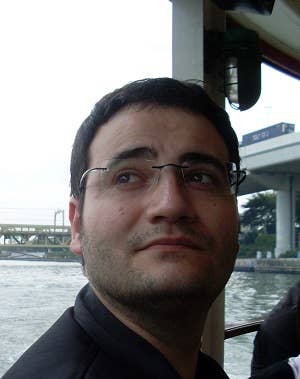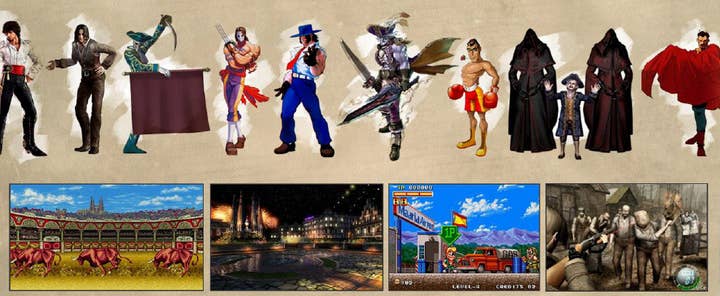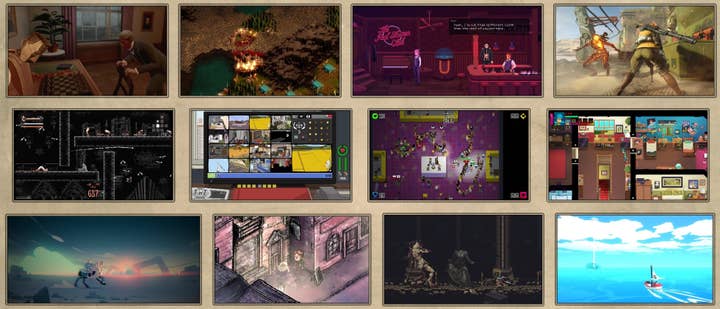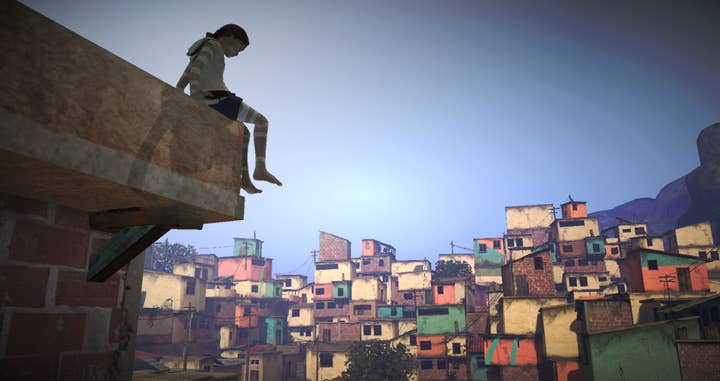Tequila Works' Raul Rubio on the dangers of building on stereotypes
"If you look at games made in Spain, you will notice a shocking lack of bullfighters"
Delivering a keynote at last month's Reboot Develop, the head of the studio behind Rime and The Sexy Brutale urged developers to avoid stereotypes in their games.
In a session entitled The Root of Inspiration, Tequila Works' CEO Raul Rubio observed that developers are influenced by everything around them, every good and bad experience they have, but it's important to ensure that those influences inspire something original.

"Games started like any industry: insecure," he explained. "And when you're insecure you look to role models, and for us one of the most relatable role models was Hollywood. And in Hollywood, the vision of the world that has become the standard relies heavily on cliches and stereotypes. In games, we basically did the same."
He offered the example of It's A Small World, the famous globally themed Disneyland ride. Opened in 1966 and developed in the wake of the Cuban Missile Crisis, the attraction was born out of Walt Disney's desire to transmit the idea of world peace and unity within just a few minutes - and his chosen method relied heavily on stereotypes.
"Stereotypes are sometimes convenient, especially when you don't have time to explain something," Rubio said. "The way that Disney explained how we are all pretty much the same was by highlighting our differences. You take 300 animatronic children and dress them up in regional clothes and get them to sing a very catchy song - the world's most performed song ever.
"Concepts like geography or the geopolitical sensitivities of the Sixties are totally useless when you are trying to impress a target audience of highly ignorant, highly impressionable children. That's why we tend to use stereotypes because they're very, very convenient, they are fast, they draw us into the action. The problem is they are static, they get tired very quickly."

He stressed that the urge to use convenient stereotype is by no means solely a practice seen in AAA games - indies are just as prone to rely on cliches in order to make their games instantly recognisable or understandable.
"But many studios like Tequila Works are trying to go beyond those stereotypes, to build worlds that can really feel unique," the CEO said.
Rubio pointed to how video games often depict his home nation of Spain, bringing up images of characters from Street Fighter, Resident Evil and more - all sharing a particularly obvious theme.
"When you look at how the world sees Spain, these [stereotypes] are frivolous," he said. "Bullfighters, bullfighters everywhere. If you use the stereotypes as your source for inspiration, you end up with the same references, pretty settings - and little more.
"We tend to use stereotypes because they're very convenient, they draw us into the action. The problem is they are static, they get tired very quickly"
"By contrast, if you look at games made in Spain, you'll notice a shocking lack of bullfighters. There have only been three games about bullfighting in 30 years - and one of them was cancelled."
Tailoring his talk to his audience, he pointed to the use of Croatia in video games. Home to Reboot Develop, the Mediterranean nation has also been used in Colin McRae, Wolfenstein and a myriad of World War II games - but Rubio deems these depictions to be "a wasted opportunity."
"It's just an excuse for a setting, it's just a location," he said, adding that Croatia is home to a great many cultures, as well as numerous UNESCO World Heritage sites - something rarely reflected in video games.
"Culture is not about the differences," he continued. "It's not about how others see you or how you see others, it's about how you define yourself and what we all share in common. Look at the work of [famed Japanese animator, Hayao] Miyazaki - it's not about how a mailbox or a tram looks in Japan, it's about universal feelings, about emotions.
"We are all human in this room so we all understand the feelings of loss, or respect for the elders, or a love of nature. You don't need to explain that because we all share the same feelings."

He gave the example of Papo & Yo, the 2012 Minority Media title about a young boy who escapes his abusive, alcoholic father by exploring a dream world with a docile monster he befriends. While it has a fantasy setting, the game is directly inspired by real-world locations and events - most notably, it is the autobiographical story of creator Vander Caballero's childhood.
"Like padron peppers, ideas all look the same, they all look good on paper. But only when you try them do you know which one is the spicy one"
"When you look at the inspirations, he grew up in Bogota, Colombia and of course you can feel the references - it looks like his hometown," Rubio said, bringing up screenshots from the game. "But more importantly, he's transformed it into something magical, something that felt unique and dreamlike, where the favellas are now like little toyboxes piled together and all the streets are blessed with masterpieces by renowned Latin American street artists.
"Sometimes your influences come directly from where you are from."
Rubio pressed the point by turning his attention to Nintendo, the "little family-run toy company" behind some of the world's most recognisable games franchises.
"It's no secret the Hojo Clan crest helped define the Triforce," he observed. "Even the Inari Foxes basebell team helped define Star Fox."
While Rubio is a major proponent from drawing inspiration from your own culture and experiences, he does recognise that stereotypes can provide some original ideas when you experiment with them.
"Sometimes you just blend stereotypes," he said. "Take stereotypes like noir and dia de los muertos [the Day of the Dead]... presto - you have a timeless masterpiece, Grim Fandango."

He also stressed that creating original games means combining ideas from all members of the team. Using one of the many crowd-pleasing food analogies he'd packed into his talk, Rubio pointed to a Spanish speciality, the padron pepper.
"They all look the same but one of them is very fucking hot," he explained. "Like padron peppers, ideas all look the same, they all look good on paper. But only when you try them do you know which one is the spicy one."
To better understand the rest of your team, the ideas they might have and the things that inspire and motivate them, Rubio urged developers - particularly studio heads - to work closely with their staff and even spend time together away from work. Tequila Works, for example, took field trips with the entire team to locations that inspired the acclaimed and beautiful Rime.
"Spending time with [your team] is critical," Rubio said. "Why? Because this culture and this root [of inspiration] is not just topping you can add later, like cinnamon or chocolate or jalapenos. It's literally something you need to put [at the beginning] of creativity. When it grows and you're making your pie, it will become a very thick and delicious crust... because it was there from the beginning. It's part of your soul, it's not something you can force.
"You need to accept the things that are coming to you, and more importantly look inside you to discover what you have. The worst thing you can do is try to force something. Don't try to explain it or you will lose all the fun. Don't try to force it because if you don't understand what made it special in the first place, it's not going to be so delicious [at the end].
"You want to plant the seed, to make it grow strong, healthy and unique. And that's not something you're going to do alone, it's something you're going to do with others, so grow together."








